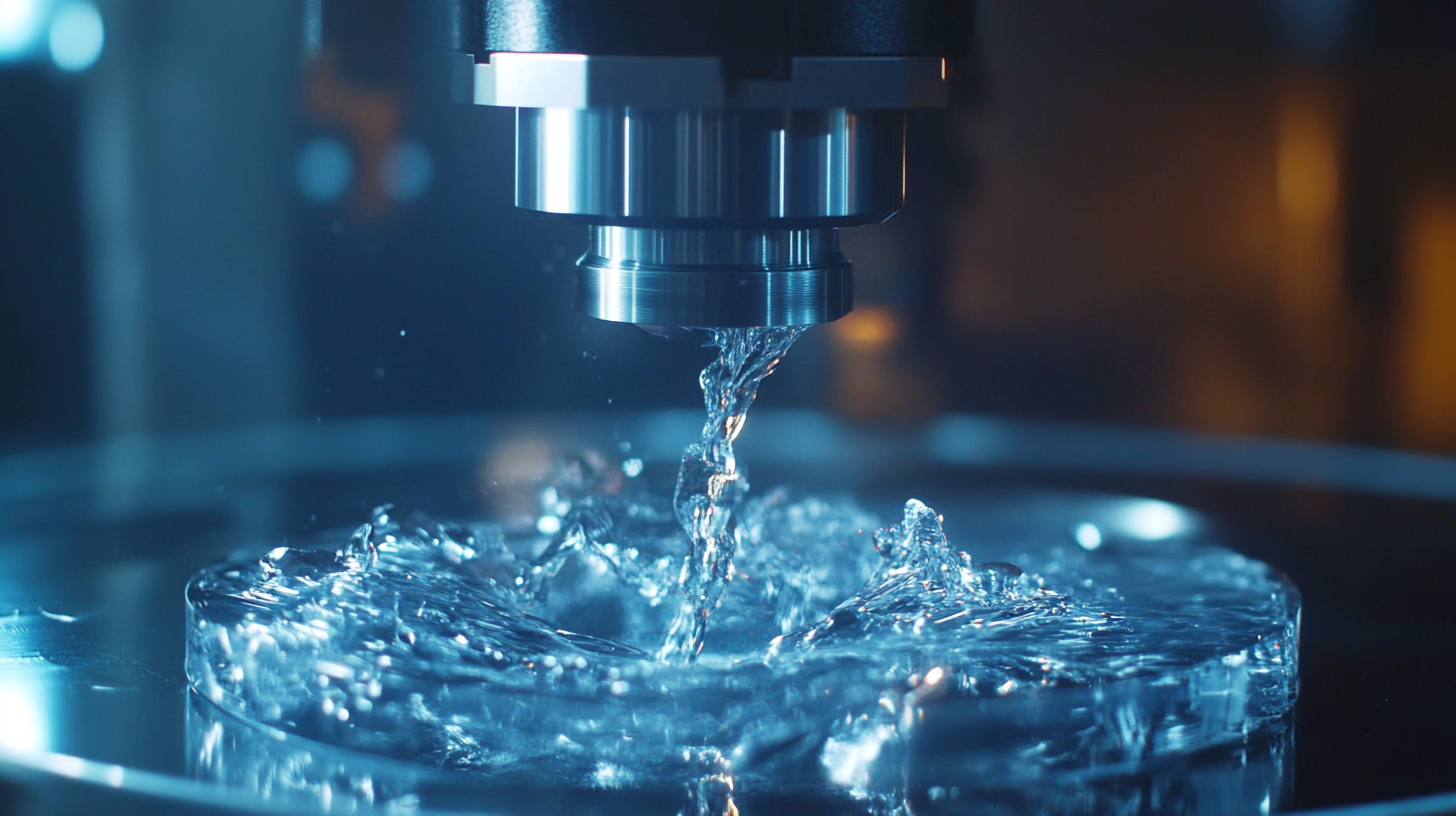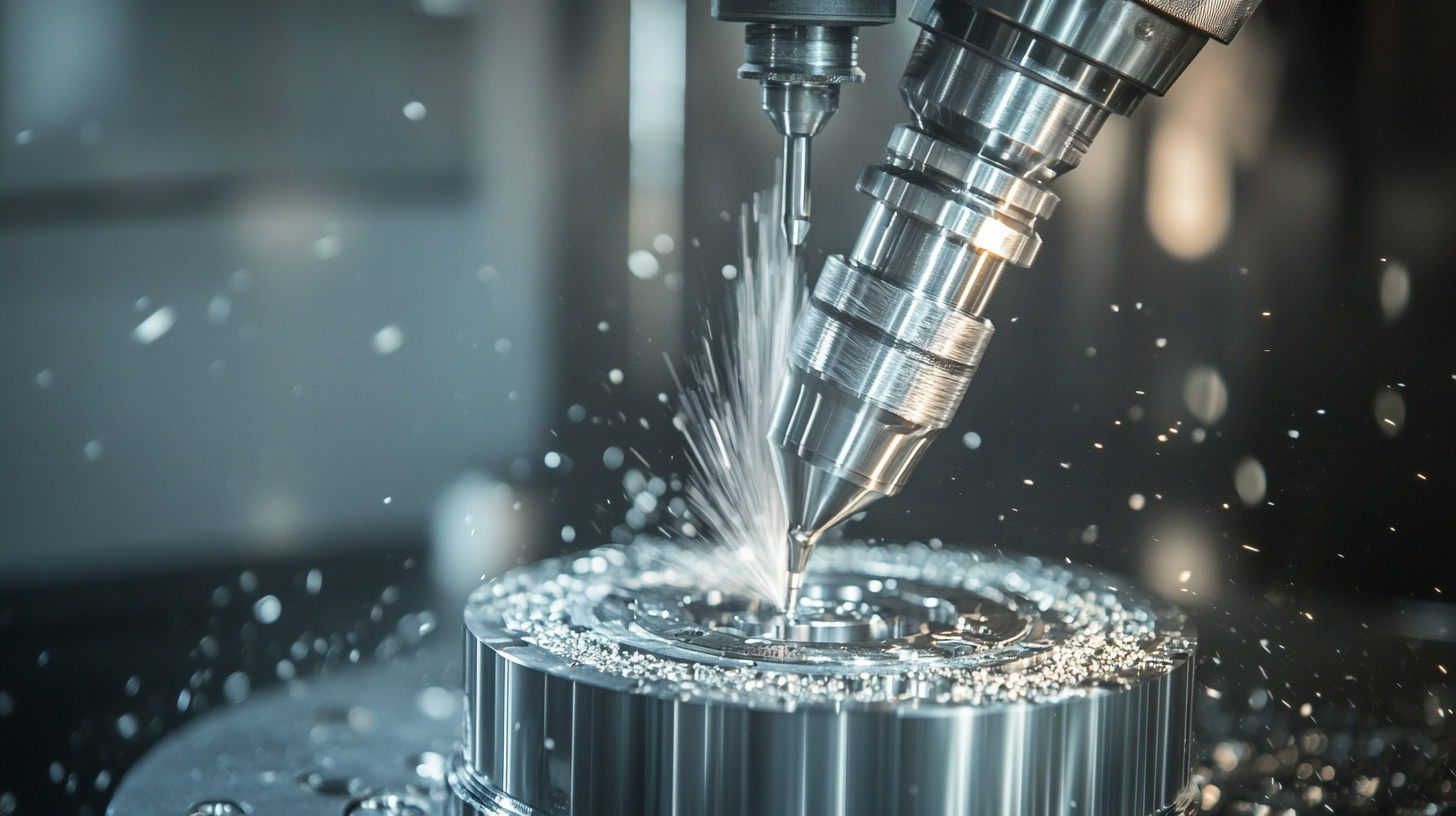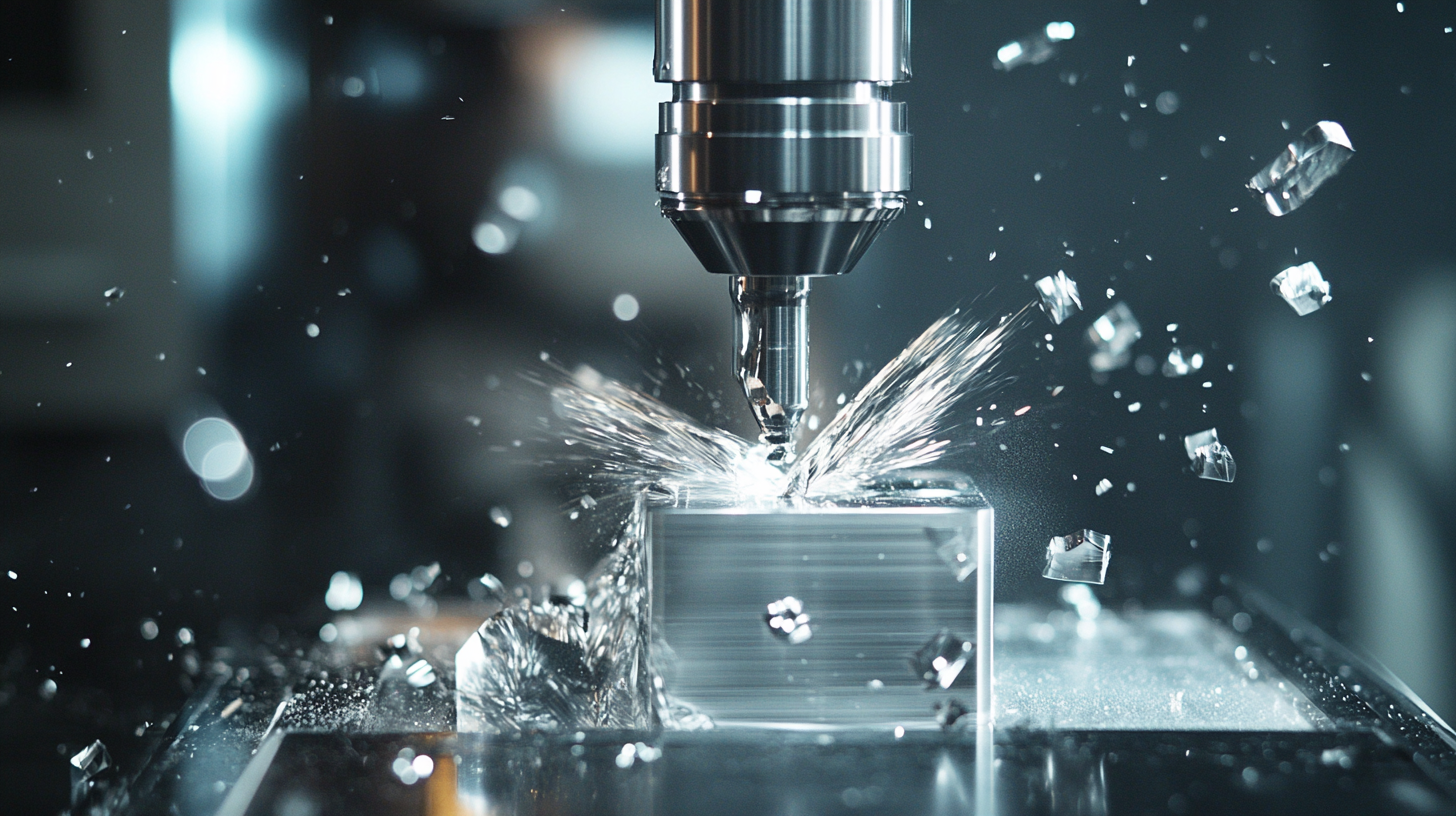As global manufacturing advances into 2025, the demand for precision CNC (Computer Numerical Control) parts is set to skyrocket, driven by innovations in technology and increasing automation across industries. According to a recent report by Grand View Research, the global CNC machining market is projected to reach $100 billion by 2025, with a significant portion attributed to the rising need for high-precision components in sectors such as aerospace, automotive, and healthcare. These industries require precision CNC parts that not only meet stringent quality standards but also enhance efficiency and reduce production times. As manufacturers strive to stay competitive, exploring ultimate solutions for achieving the best precision CNC parts has become a critical focus. In this blog, we will delve into the latest strategies and technological advancements shaping the future of precision CNC manufacturing, ensuring your operations align with the industry's evolving requirements.

In the rapidly evolving landscape of global manufacturing, enhancing CNC machining precision is essential for staying competitive. Innovative techniques like laser cutting, 3D printing, and robotic welding are revolutionizing modern metal fabrication. These methods not only improve accuracy but also significantly reduce production time, thereby increasing overall efficiency. As the CNC machine market is projected to grow exponentially, companies must adapt to these cutting-edge strategies to meet rising demands.
Tip: Embrace advanced technologies such as AI to analyze machining processes and optimize workflows. Integrating AI can lead to smarter manufacturing decisions, enhancing precision and minimizing errors.
The integration of next-generation technologies is pivotal. Breakthroughs in machining robotics promise up to 300% improved path accuracy, showcasing how automation can transform production capabilities. Adopting these innovative solutions allows manufacturers to push the boundaries of traditional machining.
Tip: Regularly invest in employee training to equip your workforce with the knowledge to utilize advanced technologies effectively. A well-trained team is crucial for maximizing the benefits of new tools and techniques in precision machining.

When it comes to achieving the best precision CNC parts in global manufacturing, the selection of materials plays a pivotal role. The quality and performance of CNC machined components are heavily influenced by the materials used. Factors such as tensile strength, thermal stability, and corrosion resistance must be considered to ensure that the final product meets the specific requirements of its application. For instance, aluminum alloys are often preferred for their lightweight and strong properties, making them ideal for industries like aerospace and automotive.
Moreover, advancements in materials science have led to the introduction of high-performance composites and specialized alloys, which can significantly enhance the capabilities of CNC machining processes. These materials not only contribute to superior structural integrity but also allow for intricate designs that traditional manufacturing methods may not achieve. By investing in the right material selection, manufacturers can optimize their production efficiencies and deliver high-quality, durable CNC parts that stand out in the competitive global market.
The following chart illustrates the impact of different materials on the quality of CNC parts. By analyzing data from various manufacturing processes, we can identify the importance of material selection in achieving superior CNC parts quality.
Achieving precision in CNC manufacturing is crucial across various industries, from aerospace to medical devices. A report by MarketsandMarkets estimates that the global CNC machine market will reach $100 billion by 2025, driven by the increasing need for precise and efficient manufacturing processes.
Case studies illustrate how companies effectively implemented advanced CNC technologies to enhance their production capabilities. For instance, Boeing's integration of additive manufacturing in CNC processes has led to a 20% reduction in part weight while maintaining strength, demonstrating tangible benefits in aerospace applications.
In the automotive sector, Ford has adopted precision CNC machining to create complex engine components with unmatched accuracy. This shift not only improved performance but also reduced machining time by 30%, illustrating the efficiency gains achievable through innovative CNC applications.
In today's competitive landscape of global manufacturing, achieving unparalleled precision in CNC parts is more crucial than ever. Leveraging advanced software for CNC precision optimization has become a game-changer, enabling manufacturers to enhance accuracy and reduce waste. The adoption of innovative algorithms and machine learning techniques allows for real-time adjustments, ensuring that the final products meet the highest standards of quality while optimizing production efficiency.

The growing CNC machine tool market is projected to expand significantly, driven by increased automation across various sectors, including automotive and precision machinery. As manufacturers seek to improve their processes, the integration of sophisticated software tools aids in precise metal cutting and forming applications. This not only elevates product quality but also enhances the adaptability of manufacturing processes to meet specific industry requirements. With the right technology in place, businesses can remain competitive by delivering superior products that can satisfy diverse market demands.
In today's competitive landscape of global manufacturing, achieving the highest precision in CNC parts requires a meticulous approach to quality control. Data from the International Journal of Advanced Manufacturing Technology indicates that around 40% of manufacturing costs are attributed to poor quality, highlighting the importance of robust quality management systems. Effective measures such as real-time monitoring, statistical process control (SPC), and comprehensive employee training can significantly enhance the precision of CNC machined parts.
Tips: Implementing a Six Sigma methodology can help identify and eliminate defects in your production process, ultimately improving product consistency and reducing waste. Regularly updating software and machinery to the latest standards can also contribute to higher precision levels, as modern tools often come equipped with advanced features that support accurate machining.
Moreover, supplier quality assurance plays a pivotal role in maintaining precision. According to a report by Deloitte, companies that engage in stringent supplier audits typically witness a 20-25% reduction in defects. Establishing strong partnerships with suppliers and performing regular quality assessments can lead to a significant improvement in the overall quality of CNC parts, ensuring that manufacturers meet global standards and customer expectations efficiently.
